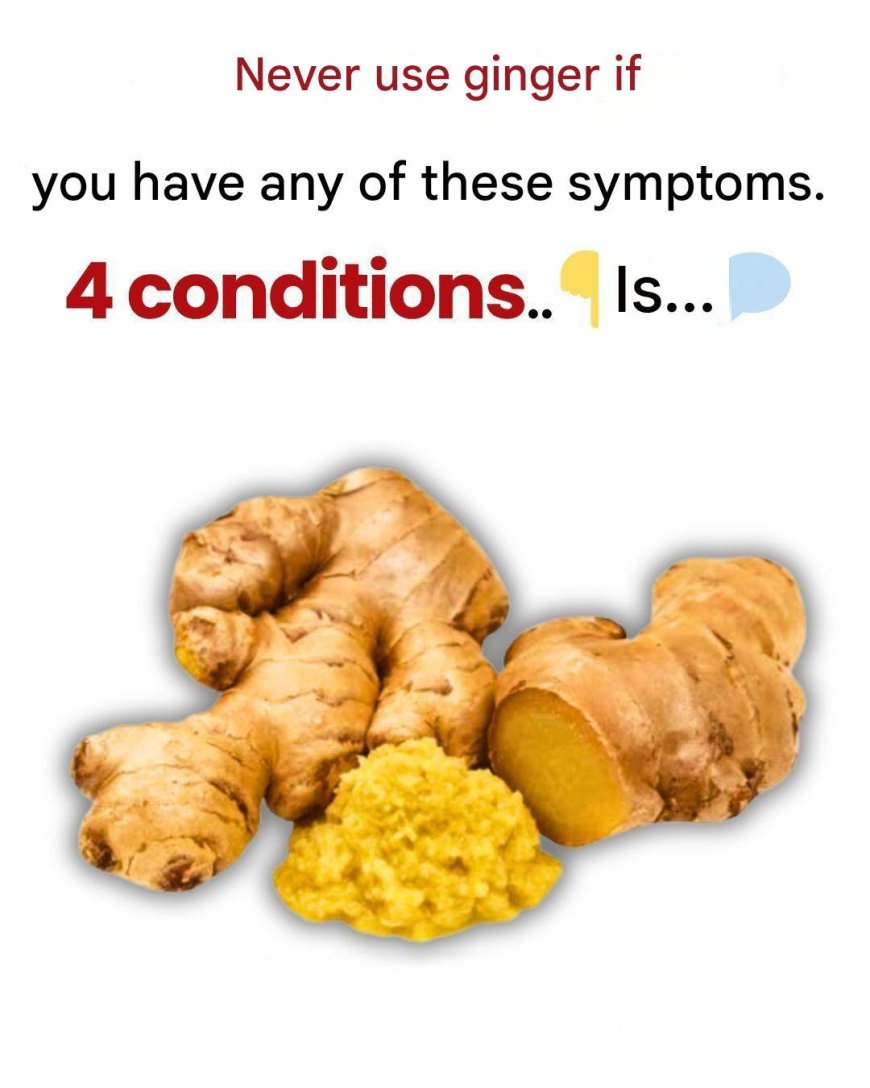Never use ginger if you suffer from any of these conditions; it can lead to serious health problems
Ginger is one of nature’s most powerful and versatile ingredients — praised for its anti-inflammatory, antioxidant, and digestive benefits. From easing nausea to boosting circulation, this ancient root has earned a reputation as a natural remedy for countless health concerns. However, despite its many advantages, ginger isn’t suitable for everyone. In certain conditions or when combined with specific medications, it can cause unwanted side effects or make existing issues worse.
1.
Never use ginger if you suffer from any of these conditions; it can lead to serious health problems.
Ginger root is a superfood with anti-inflammatory, antioxidant, and digestive properties. This spice is recommended as a natural remedy for many physical ailments thanks to its nutrients and phytochemicals that are beneficial to health.
However, there are situations where ginger is an unsuitable dietary supplement and can worsen an existing problem.
When to avoid ginger root?
Here are some situations where ginger should be avoided due to its risks.
1. Blood disorders
Ginger root is a blood thinner that promotes circulation. In the case of certain blood disorders such as hemophilia (where blood clotting does not occur properly), thinner blood can worsen the condition, causing minor, potentially fatal bleeding.
Beneficial due to its effects on cardiovascular disease, rheumatoid arthritis and hypercholesterolemia, it is best to avoid ginger if you have a blood problem without first talking to your healthcare professional.
2. Taking prescription medication
A medication is formulated to treat a specific symptom and is designed to work in a certain way within the body. Medications come with a list of warnings and potential side effects.
Because ginger root has medicinal properties, some medications are incompatible with it. To avoid any risks or side effects, read the warnings and gather as much information as possible for your own safety.
Ginger is a natural blood thinner and lowers blood pressure. It also regulates blood sugar (1). Combining it with medications designed for the same effect can be excessive. Therefore, ginger should not be taken with anticoagulants, beta-blockers, aspirin, or insulin.
A list
of medications known to interact negatively with ginger is available here.
3. Pregnancy
A ginger root tea in early pregnancy can relieve nausea and vomiting. After the first trimester, however, ginger root should be consumed infrequently and in very small doses (or not at all), as it can trigger uterine contractions (2). This can lead to premature labor or miscarriage.
On the other hand, it can be useful when the due date has passed and you are ready to meet your baby in person.
4. Underweight
Ginger stimulates digestion, which explains its effectiveness against stomach aches and other gastrointestinal disorders. If you are significantly underweight, it is important to slow down digestion and absorb as many nutrients as possible.
Tap the p.hoto to v.iew the full r.ecipe.



























